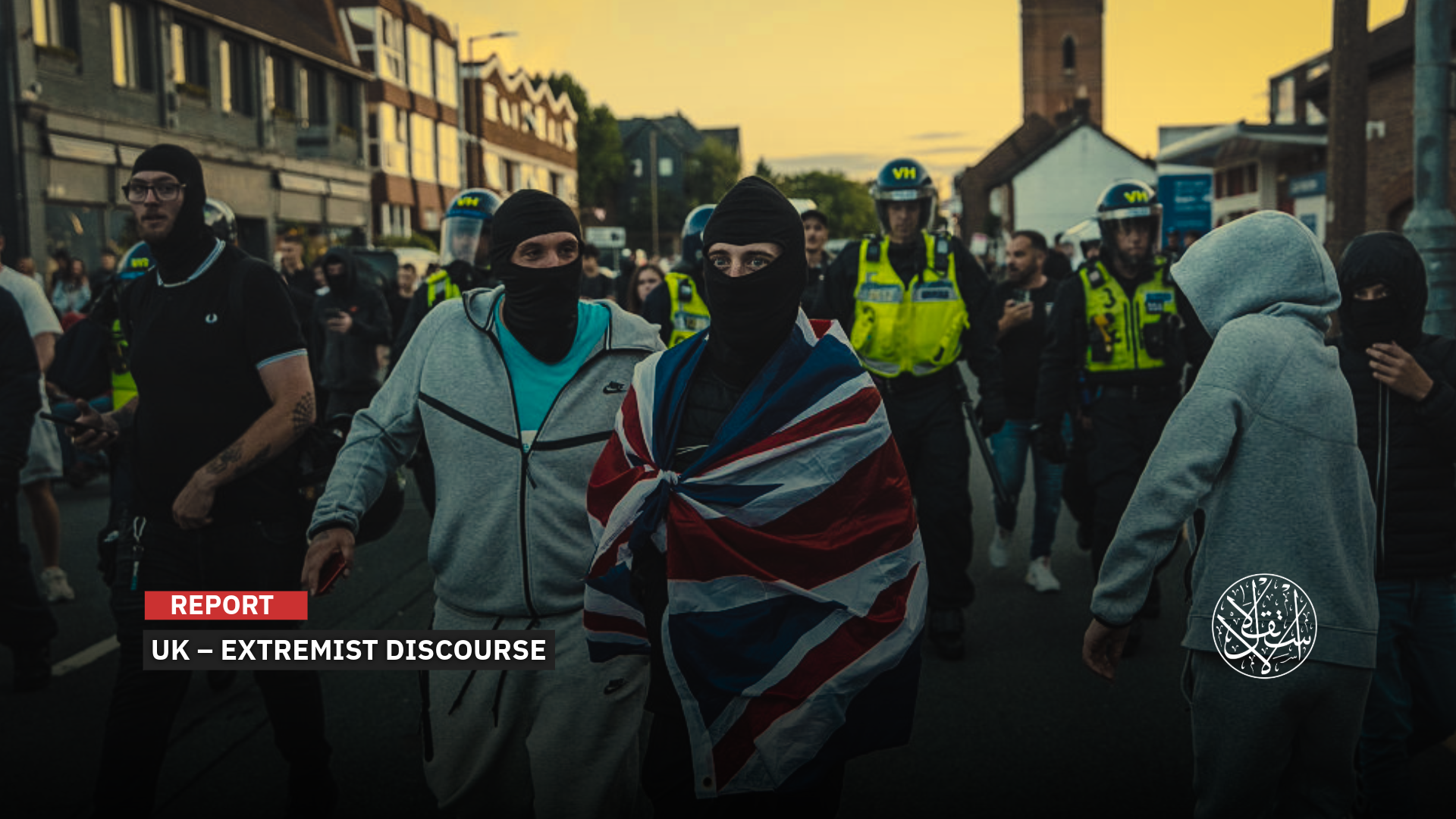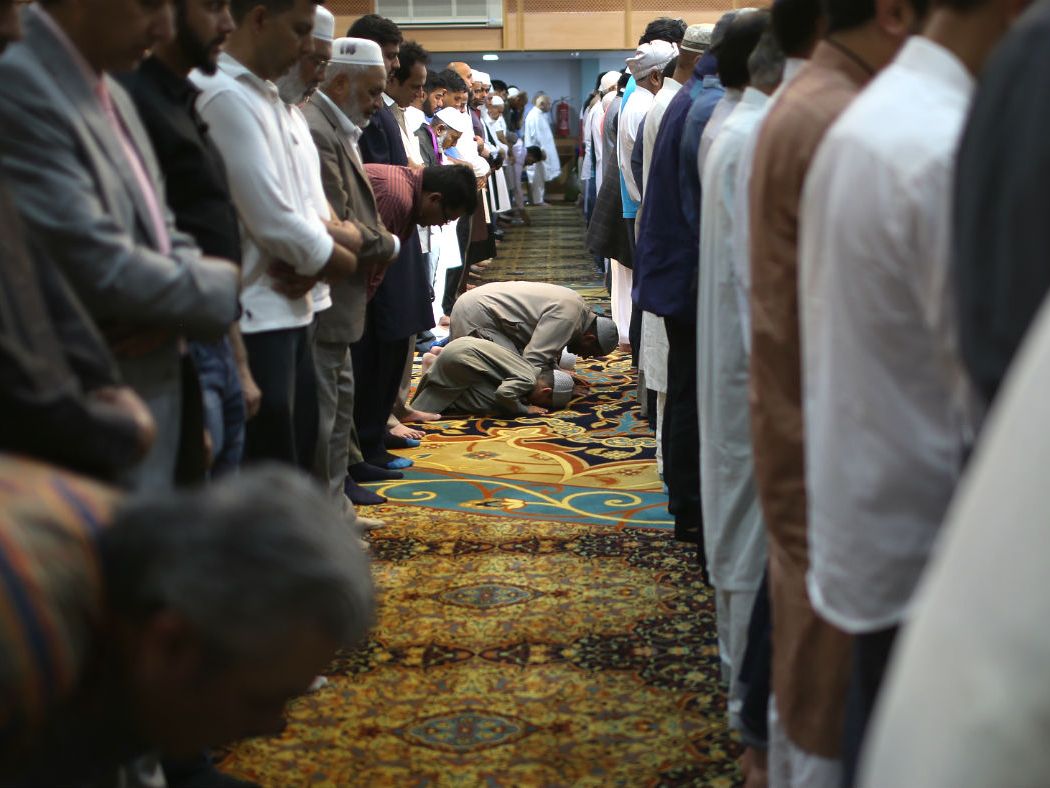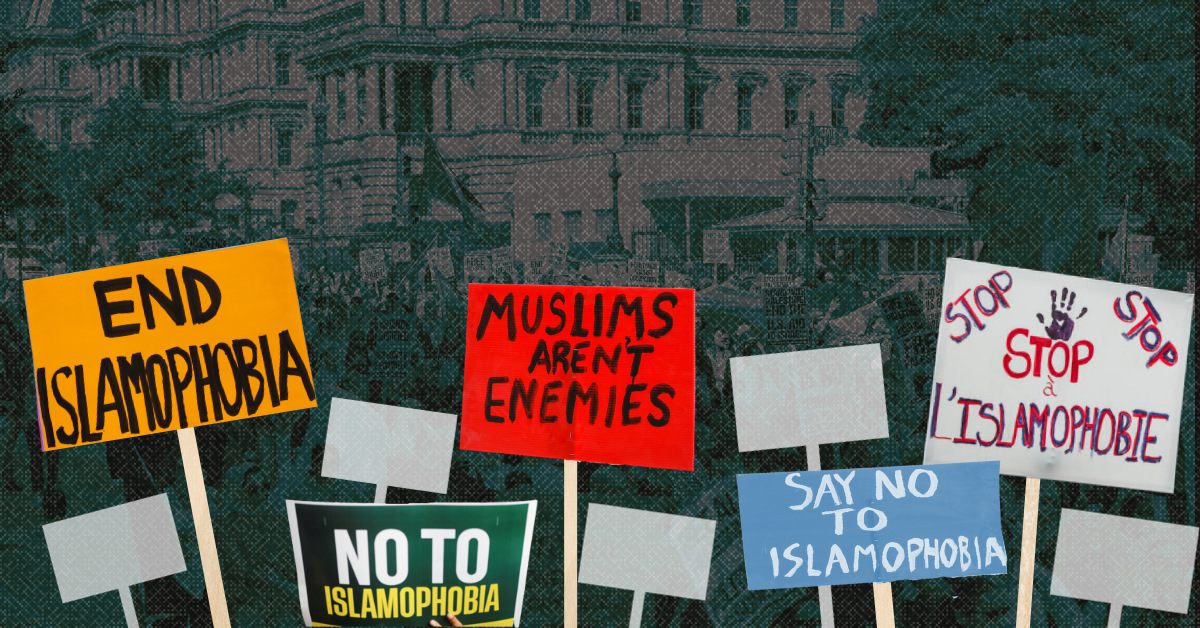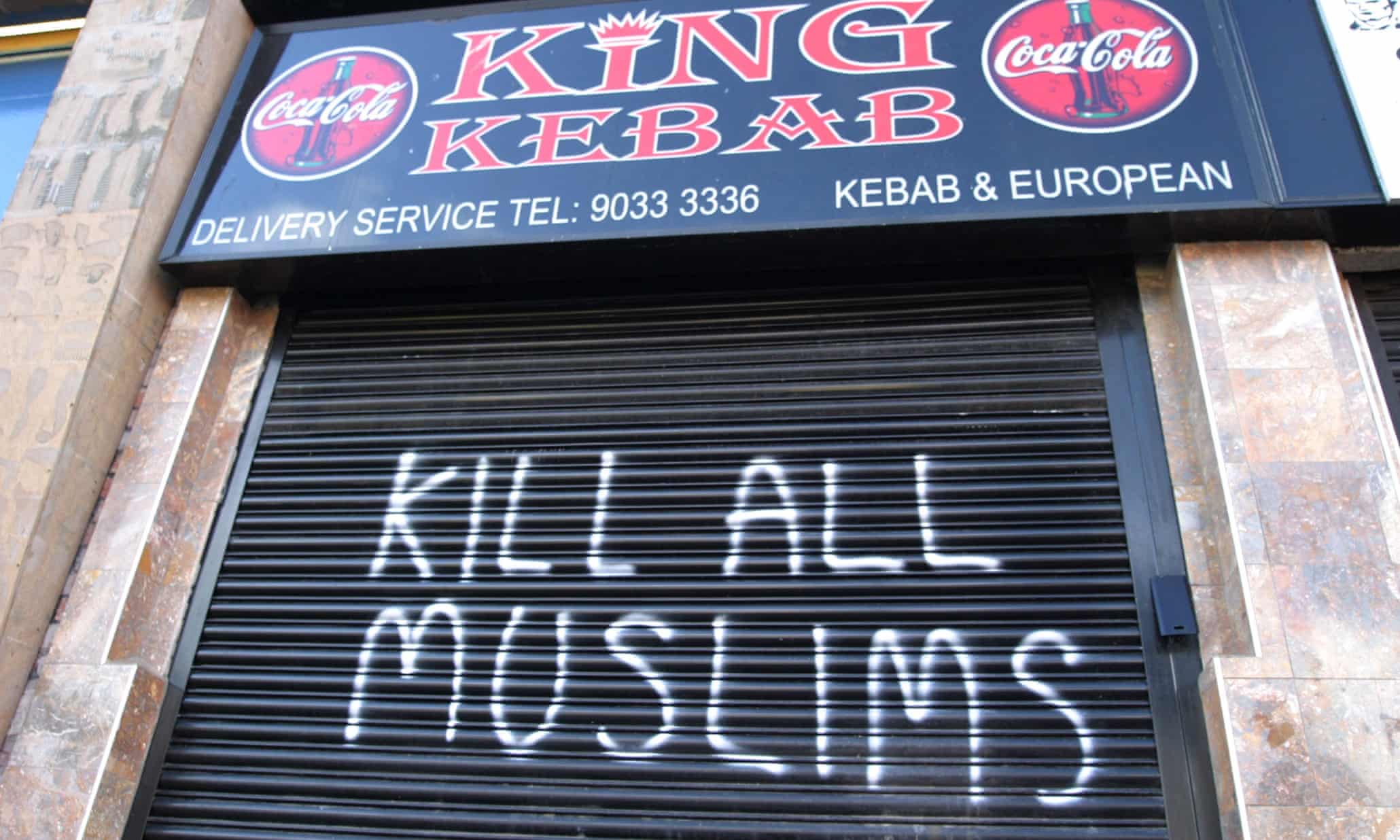Community Anxiety: Is Islamophobia Taking Over the UK?

“The discussion around Islamophobia and hate crime prevention gained renewed urgency in the UK.”
Amid rising hate crimes against Muslims and the rise of far-right rhetoric, Muslims in the UK face a renewed challenge in proving their national belonging without compromising their religious identity.
A recent survey has shown that a large portion of Britons believe that Islam is incompatible with British values and that Muslim immigrants negatively impact the country, highlighting significant problems in the relationship between the Muslim community and wider British society.
These findings raise shocking questions. Do these attitudes reflect an identity crisis in British society in the face of increasing religious and cultural diversity? Or is there a systematic campaign of demonization of Islam fueled by media outlets and political rhetoric?
Deep Concern
While the UK continues to emphasize values of pluralism and integration, data reveals a growing public concern about Islam and Muslims.
A new poll showed that 41% of Britons believe that Muslim immigrants negatively impact the UK, while 31% believe that Islam encourages violence.
The YouGov poll, conducted for the British Muslim Association in mid-July, surveyed 2,130 adults in the UK and focused on citizens' assessments of the impact of immigrants from various religious backgrounds on British society.
It revealed a significant gap in perceptions of religions, with negative views of Christians at just 7%, Jews at 13%, Sikhs at 14%, and Hindus at 15%, indicating a clear focus on Islam alone.
On the other hand, only 24% of respondents believed that Muslim immigrants had a positive impact on society, the lowest percentage among all religious groups.
When respondents were asked about the compatibility of Islam with British values, 53% said it was incompatible with British values, 25% said it was not, and 22% were undecided.
49% of Britons believed that Muslim women wear the hijab due to family or societal pressure, while only 26% believed that wearing the hijab was a personal decision based on individual choice.
A prominent imam in the UK described these results as deeply worrying, reflecting growing hostility toward Muslims.
He warned that this trend could undermine the foundations of coexistence and fuel discourses of rejection and demonization.
Regarding the survey results, The Guardian newspaper asserted that Islamophobia is no longer just an extremist discourse, but has become a dominant trend in British society.
It warned that this wave could lead to more hostile policies against Muslims and restrictions on their religious freedoms.
It also linked this phenomenon to organized campaigns aimed at distorting the image of Islam after the events of September 11, 2001, which succeeded in shifting hatred from the category of ‘Muslim extremists’ to ‘all Muslims’, posing a growing threat to religious and social coexistence in the United Kingdom.
In turn, journalist Ali Amer warned in a statement to Al-Estiklal that the implications of the YouGov survey reflect the fragility of the concepts of multiculturalism and coexistence in the UK.
He called for a reconsideration of British public discourse regarding Islam and Muslims, emphasizing the importance of confronting and radically addressing societal concerns.
He proposed empowering Muslims to play more visible roles in public life, away from stereotypes and exaggerated fear.
He called for the need to directly confront religious prejudice and discrimination, rejecting the normalization of exclusionary discourse toward Muslims.

Hatred Against Muslims
In a new step, the UK government recently launched the Combatting Hatred Against Muslims Fund, which aims to address the rising level of racist incidents against Muslims in the UK, a problem that has reached an all-time high.
The British Muslim Trust (BMT) has been selected as a primary beneficiary of this fund, tasked with developing a robust system to monitor anti-Muslim hate incidents, both online and offline.
BMT is expected to begin receiving reports and monitoring incidents related to anti-Muslim hate starting early next autumn.
BMT was established with funding from the Aziz Foundation and the Randeree Charitable Trust, with activist Akeela Ahmed serving as the new organization's CEO.
In March, the UK government ended its funding for Tell Mama, a leading organization that had been providing anti-Muslim hate monitoring services for 13 years.
The decision came after the organization revealed a record number of anti-Muslim hate crimes in the UK over the past year, amid rising community tensions.
Separate police figures show that Muslims were the most targeted group in England and Wales, accounting for 38% of religious hate crimes recorded up to March 2024.
The decision also comes at a sensitive time, with recent investigations uncovering far-right terrorist plots targeting Muslims.
A British court recently heard that a neo-Nazi cell was planning to attack mosques and synagogues, and one of its members even discussed torturing an imam.

Anti-Islam Propaganda
In February, the Labour government established a working group to develop a formal definition of discrimination against Muslims and gave it six months to submit a report.
The group is led by Dominic Grieve, a Conservative MP and former justice minister from 2010 to 2014, and coordinated by Joel Salmon, a former parliamentary officer of the Board of Deputies of British Jews.
The group also includes Akeela Ahmed, CEO of the British Muslim Network (BMN), Javed Khan, executive director of Equi (a think tank), Baroness Shaista Gohir, a crossbench peer and CEO of Muslim Women's Network UK (MWNUK), and Aisha Affi, an independent consultant.
While the anticipated definition is not legally binding, it will serve as a reference for the government and relevant bodies to understand and identify manifestations of hatred and discrimination against Muslims.
This action indicates that the Labour government has backed away from its plans to adopt the definition of Islamophobia proposed by the All-Party Parliamentary Group (APPG) on British Muslims in 2018.
The APPG definition, adopted by Labour while in opposition, described Islamophobia as: “A form of racism that targets expressions of Muslim identity or the perception of such identity.”
It sparked widespread controversy between supporters who saw it as a step to protect Muslims, and opponents who considered it a threat to the freedom to criticize religion.

In a related development, Middle East Eye recently reported that the UK government prevented its group tasked with developing an acceptable definition of Islamophobia from consulting with Britain's largest Muslim organization, the Muslim Council of Britain (MCB), despite it representing more than 500 organizations, including schools, mosques, and local councils.
It also asked its group not to consult the Centre for Media Monitoring (CfMM), which monitors coverage of Muslims in the British media. CfMM was initially established by MCB but later became independent.
However, the working group consulted two prominent figures accused of Islamophobia about whether a definition of Islamophobia would be useful.
The first is Trevor Phillips, a broadcaster and former politician whose membership in the Labour Party was suspended when Jeremy Corbyn was leader in March 2020 following allegations of making derogatory remarks about Muslims. This suspension was lifted with the arrival of Keir Starmer in 2021.
The other is John Jenkins, a former British ambassador to Saudi Arabia, who was charged in March 2024 with supporting social media posts that advocated Islamophobia or promoted propaganda against Muslims.
The working group also met with officials from the Community Security Trust (CST), which monitors antisemitism, and invited Policy Exchange, a conservative think tank accused of Islamophobia, for consultations, but the think tank declined.
It consulted with groups including the National Secular Society (NSS) and Humanists UK, which criticized an earlier definition of Islamophobia.

Religious Conflict
These developments come amid escalating violence and hatred against Muslims in the UK, and amid sharp social divisions fueled by the rise of the far right.
In the summer of 2024, the UK witnessed a wave of riots led by far-right groups, which included racist, anti-Muslim, and anti-immigrant attacks.
Amid such racist violence, it was no surprise that The Economist magazine chose, on the anniversary of those riots, to conduct a poll focusing on race rather than economic issues affecting the lives of millions of Britons.
The poll showed that nearly 50% of the population believed that multiculturalism was not good for the country, while 73% believed that new race riots were imminent.
Days ago, the UK witnessed two tragic stabbing incidents targeting two young Muslims, raising growing concerns about the rise of hate crimes against the country's Muslim community.
On August 1, 19-year-old Mohammed Afzal was stabbed to death in Manchester, and authorities arrested five suspects.
This incident coincided with another fatal stabbing in Cambridge on August 1, in which 20-year-old Saudi student Mohammed Yousef Alqassem was killed.
After arresting the 21-year-old killer, police said the crime stemmed from an unprovoked altercation.

According to the latest 2021 UK census data, the Muslim population in England and Wales is more than 3.9 million, representing approximately 6.5% of the total population, the highest percentage since records began.
Muslim populations are concentrated in major cities such as London, Manchester, and Birmingham.
The Muslim community also plays an important role in various sectors, including the economy, education, and healthcare.
Despite this active participation, the community still faces difficulties in fully integrating, due to political tensions and growing negative perceptions reflected in opinion polls and the media.
This gap between statistical reality and popular attitudes raises serious questions about whether the UK is truly moving toward a multi-identity society, or whether it is engaged in a muted struggle with the concept of the religious other.
Analysts point out that Muslims in the UK are not only seeking integration, but are also defending their existence and their right to representation and participation, amid a social environment that is not devoid of apprehension.











